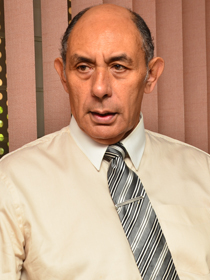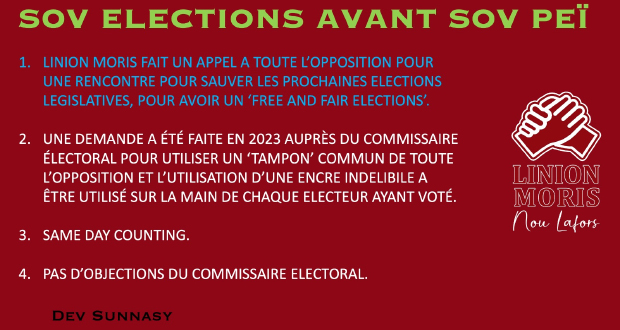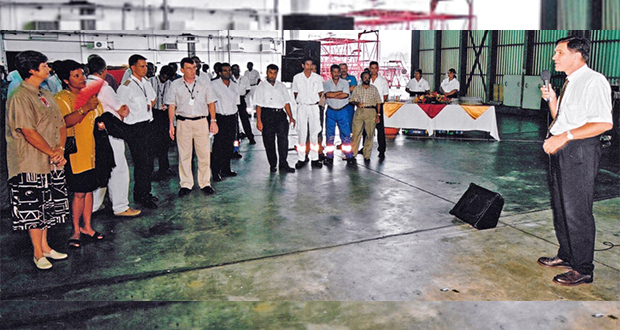Publicité
“My gut feeling is that the story that the man had hanged himself in his cell is suspect”
Par
Partager cet article
“My gut feeling is that the story that the man had hanged himself in his cell is suspect”


This week, Weekly speaks to Hervé Lassemillante, deputy chairman, National Human Rights Commission, Mauritius. He shares with us his views on the situation in our prisons and the problem of drugs and offers his own theory on the suspect who allegedly committed suicide whilst in police custody.
In your capacity as a member of the national preventive mechanism division of the National Human Rights Commission, you have been visiting our prisons regularly. How bad is the situation within?
There is a growing number of allegations of violence. That is disturbing.
Are they true?
Some are not true and others are true. Once we receive an allegation, we enquire.
And what are your findings?
Sometimes we find no substance in the allegations and in other cases we do find some truth in them. We have to determine whether there is any substance in the allegations we receive. To be able to do this, we ought to have unhindered access to premises, documents, footages etc., according to the law. However, recently, we have been having a lot of difficulty having access to security footage. When we ask for access to the footage, we get all sorts of excuses such as ‘we must ask the commissioner of prisons’ etc. We never had such problems before. Things have become a bit more complicated. At times, when we do get the footage, there is no time or date on it!
Are you saying you had a better relationship with the previous commissioner of prisons than the current one?
From the point of view of enforcement of human rights, I had a better working relationship with the two former ones, Jean Bruneau and the former acting commissioner of prisons. It’s got something to do with personality; some people are more difficult to work with. Some are more insistent on their prerogatives and some think that the protocol is a waste of time. But this is absolute nonsense. The State of Mauritius has signed the treaty and the protocol has work to do, and we must be allowed to enforce it.
What’s making the news these days is the drug business operating from within the prison. Have you come across any of that?
We have heard what is for me, clear evidence. And we have taken the steps required. I can’t tell you what we did.
Don’t tell me what you did; tell me what you can do.
We can make recommendations to the authorities.
Do they serve any purpose other than staying at the bottom of a drawer?
No, they don’t stay in a drawer. There are some recommendations and information that are acted upon at once.
What kind of recommendations can you make that would put an end to the drug business?
One thing is passing of information to the authorities. I won’t be able to talk further about this, but it is a great help in ridding prisons of the scourge of drugs. We have to make sure that the human rights and health of the prisoners is respected, so we cannot stay silent on drugs circulating within prisons. That is what is relevant to us. But when it is outside, we cannot act because that is outside a place of detention.
What about the lawyers who the Commission of Enquiry on Drugs has exposed as having made dozens of visits to prisoners they had no business visiting. Did you make any recommendations about that?
Our job is to make sure that the prisoner has access to his or her lawyer. If the prisoner has no business, then he or she can refuse to meet the lawyer.
What if the detainee meets the lawyer for other purposes than for his own defence?
That’s outside our remit. The detainee has a right to meet a lawyer. In these other cases, usually the detainee won’t tell us anything about that because that’s not about the violation of his rights.
What you are telling me is that as long as a prisoner does not complain, you would not know what kind of illegal activities are going on inside prisons?
Of course, we cannot act unless a detainee or a member of his or her family complains.
As a lawyer, what do you make of these visits?
I find them shocking and, if proved to be true, this is an ulcer that we must get rid of. Of course, these are allegations that must be proved, but we trust that Paul Lam Shang Leen will do what he must do.
Speaking of cases of detention, there was the case of a person who died in police custody supposedly having hanged himself with a towel tied to a sink. What did you do about that?
I heard of the case on Sunday morning. On Monday, I went to the centre and was told what had happened and I said at once that this was a suspicious case. I made a report and circulated it amongst members and wanted to send it to the commissioner of police, but then there was an intervention and the then-acting chairperson, Marie-Lourde Lam Hung, told me not to interfere.
Why?
Apparently, she had received a phone call from someone who was not happy about it.
From government?
I don’t know.
But you stopped denouncing a suspicious case just because the acting chairperson had received a phone call from someone you don’t know, who was not happy about it?
To send the report to the commissioner, it must go through the acting chairperson and that’s where it was blocked. Rightly or wrongly, that was our duty and it was the duty of the Police Complaints Commission as well to conduct an enquiry and they have that power. So she said that she was going to conduct that enquiry. When the chairperson came back to Mauritius, he said that the enquiry should be left to the Police Complaints Commission. That is where our role stopped. If the chairperson tells me not to do a job, I must respect that. As long as the job gets done.
Did it get done?
The job was done. Now how thoroughly, I cannot say.
What is your gut feeling about this whole story?
My gut feeling is that the story that the man had hanged himself in his cell is suspect. And now concerning interference, I am not saying that there was interference from government because my experience here is that there has never been any interference from government, whether it is of Navin Ramgoolam, Anerood Jugnauth or Pravind Jugnauth.
Then how do you explain what happened in this case?
I cannot explain it. It’s Lam Hung who has to explain because she is the one who received the phone call. And she is the one who told us not to go ahead and to send the documents to her instead.
I understand, but you say that that so-called suicide was suspect according to your gut feeling… and you just keep quiet about it and keep serving in the commission?
I gave the documents to the chairperson. There has been an enquiry carried out by the Police Complaints Commission. I cannot enquire about someone who is dead; I can only enquire about the conditions of detention. The conditions within the place of detention within which the alleged suicide took place. If the legal provisions gave me the power to do it, I would do it. If it does not, I cannot.
What does your conscience say about that case?
I cannot act upon my conscience when the law does not give me the power to do so.
Your conscience can guide you to resign from a commission that prevented you from doing what you felt to be right?
It would be very silly of me to resign because the law does not allow me to act in a case. There is a lot of work to be done and we are doing it. We can’t give up on that!
For more views and in-depth analysis of current issues, subscribe to Weekly for as little as Rs110 a month. Free delivery to your door. Contact us: touria.prayag@lexpress.mu
Publicité
Les plus récents






